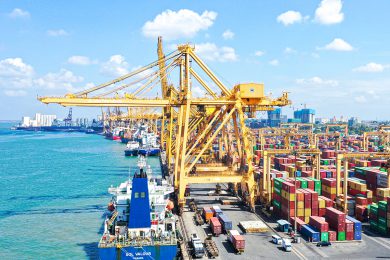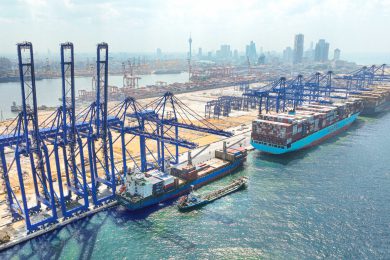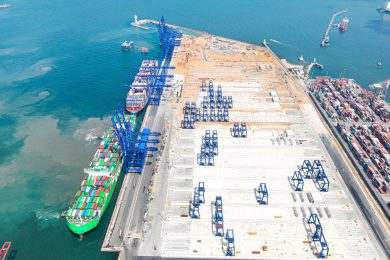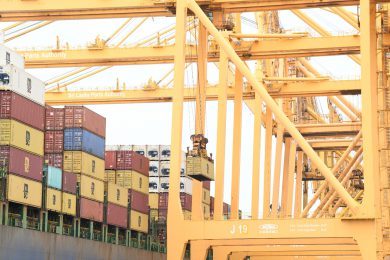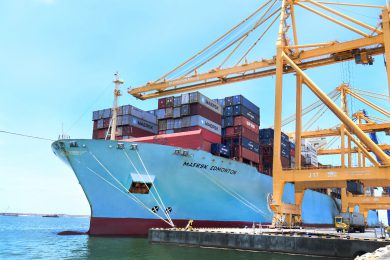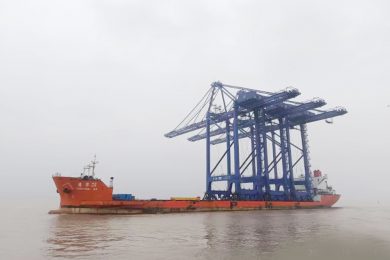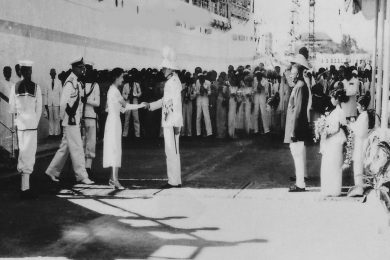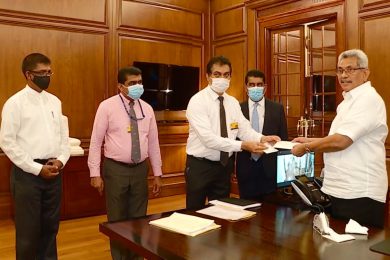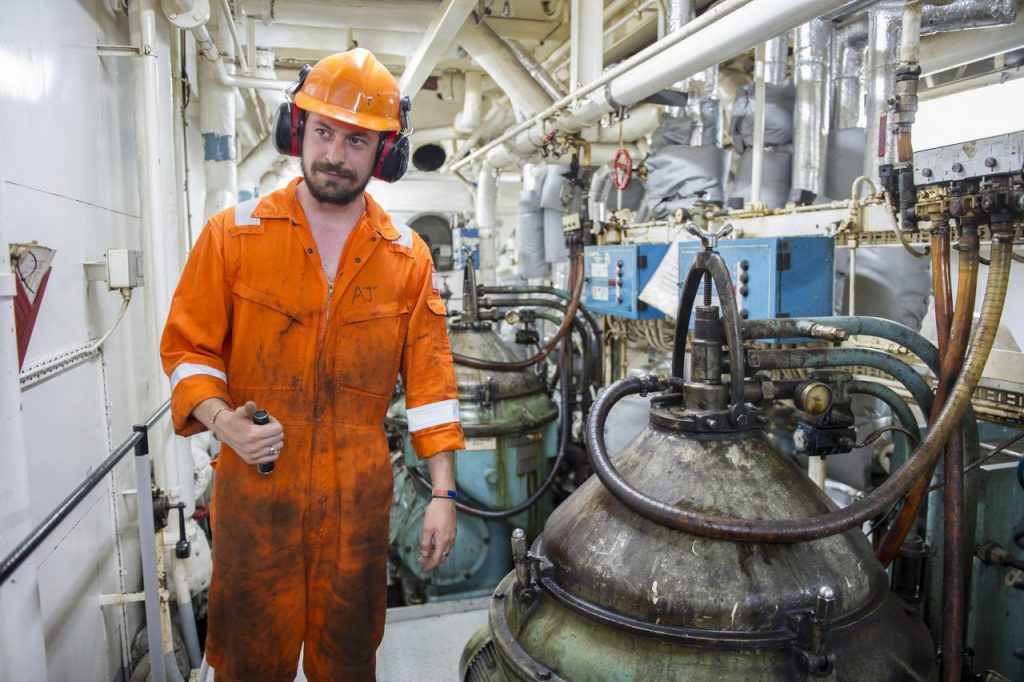“Getting the crew back on land and at the same time providing remote support is essential ”
With 800,000 still affected, the plight of seafarers is far from being over. While the industry campaigns for their safe release, what has been done to address their mental health? Ilaria Grasso Macola of Ship-Technology.com finds out.
Much has already been said about the plight of seafarers who have been stranded at sea for months because of the Covid-19 travel restrictions.
The situation – which has been defined numerous times as a humanitarian crisis by international bodies such as the International Maritime Organization and the International Labour Organization – doesn’t show any sign of improving, with more than 800,0000 seafarers still affected at the time of writing.
On 24 September, the UN Secretary-General António Guterres has renewed his plea to member states and asked them to designate seafarers as key workers, allowing crew changes.
“I remain very concerned about the growing humanitarian and safety crisis facing hundreds of thousands of these indispensable workers,” Guterres said in a statement. “Physically and mentally exhausted, away from their families and loved ones, their time at sea has now been extended far beyond the standards stipulated in international conventions, with some tours of duty now stretching more than 17 months.”
While international bodies and the overall maritime industry continue to campaign with governments to release their crews, what has been done to address seafarers’ mental wellbeing?
Some organisations, such as industry body Maritime UK, are working to change the culture, providing mental health support to those at sea not only during the pandemic but every day.
Anxiety, stigma and Covid-19
Deteriorating mental wellbeing has become a growing concern for the maritime industry.
A 2019 research – carried out by Yale alongside the ITF Seafarers’ Trust – showed that 17% of seafarers had anxiety and 20% had suicidal intentions. The study also highlighted that, compared to other groups, seafarers – especially young ones – were more likely to develop mental health problems.
“In comparison to other working populations, seafarers had [a] higher prevalence of depression and anxiety compared to oil and gas workers,” read the study. “Our observed depression prevalence was closer to a study of US airline pilots, which found a 13% prevalence of depression.”
Even though conditions change depending on age group, occupational characteristics and type of vessel, the stigma and misconceptions surrounding seafarers’ mental health remain.
According to Stuart Pollard, chair of mental health in maritime network at Maritime UK, outdated misconceptions of mental health can mean that talking about support is sometimes objected.
“There has been a common feeling that talking about mental health somehow suggests that seafarers are ‘weaker’ than the general population ashore,” says Pollard. “Some of these objections likely reflect the different national and cultural approaches to mental health within our international industry.”
According to statistics from helpline SeafarerHelp, the current Covid-19 pandemic has impacted seafarers in a myriad of ways, including stress and anxiety about health and family, social isolation, mental and physical fatigue, and crew conflict.
Even though measures such as access to helplines and communications were put in place, the industry needs to improve conditions.
“Improving seafarers’ mental health should not just be a moral obligation – it makes good business sense,” explains Pollard. “Happy seafarers are more motivated and productive; investment in prevention and support is worth it.”
A first step towards change
Launched in response to the UK Government’s Maritime 2050 strategy, the Mental Health Benchmark survey aims to foster an honest conversation about how employers support good mental health within the industry.
The survey – a partnership between Maritime UK and Safer Highways – aims to be a collaborative tool, where individuals can discuss barriers to change and best practices.
“We recognise that some organisations are wary of sharing where they are, but it’s not about showing organisations in a bad light,” says Pollard. “We expect to use the results as a collaborative tool, with organisations sharing what they are doing to achieve and meet the core and enhanced standards.”
According to Pollard, the survey’s results – to be released after 30 September – will give Maritime UK a clearer picture of the situation at hand.
“If a large number of organisations complete the survey, it will provide a good and clear indication of where we are and what type of work we have to do,” he adds. “If a small number of organisations complete the survey, it will provide an indication of where the maritime sector is with managing and promoting mental health in the workplace.”
Overall, the industry needs to implement clear and robust guidance regarding mental health.
“Mental health must be factored into existing policies where appropriate too,” comments Pollard. “All seafarers need access to free, confidential and 24-hour emotional support […] and companies must ensure working and living conditions meet or go beyond MLC standards and that seafarers can contact home frequently.”
Throwing seafarers a lifeline
Launched five years ago, the Wellness at Sea programme is a perfect example of how the industry can provide mental wellbeing support to crews, not only during the pandemic but on a regular basis.
The programme – created by Sailors’ Society and container ship operator Seaspan – helps to keep seafarers physically and mentally fit through training sessions, helplines and peer-to-peer support.
According to Sailors Society Asia regional director Gavin Lim, the project’s results have been very positive. “[Seaspan] has seen an increase in their retention rates as well as a decrease in the number of accidents,” he says. “We can’t say this is all attributed to the coaching programme, but [Seaspan] believes it somehow plays a part.”
To respond to the specific conditions created by the Covid-19 pandemic, the organisation has launched Ship Connect, a new helpline service where responders directly contact the seafarers aboard ships, instead of waiting for a call. Taking a more proactive approach helps solve the difficulty of getting seafarers to call helplines.
“We found that a good way is to make calls, especially in a crisis situation where everyone has gone through a lot in the span of a few months,” says Lim.
The responders, also called chaplains, are not psychologists but are trained in pastoral care. “They are trained to detect, understand and respond to signs of stress and mental health problems,” Lim adds. “They are confident and capable to interact using a remote medium, the phone.”
Lim believes that, while the international community lobbies for crew changes, helpline projects like Ship Connect instil a bit of hope in seafarers. “Getting the crew back on land and at the same time providing remote support is essential,” he concludes. “One cannot be without the other.”
Courtesy: www.ship-technology.com



